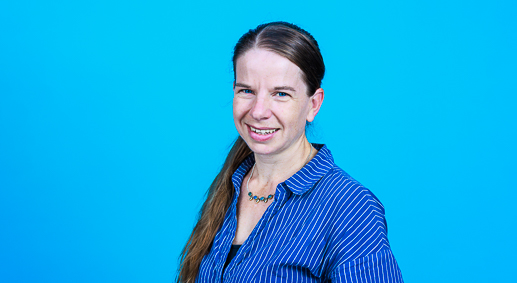Biosketch

Dr. Julia Kamenz
Julia Kamenz obtained her PhD at the Friedrich Miescher Laboratory of the Max Planck Society in Tuebingen, in the laboratory of Prof. S. Hauf. During her PhD, she investigated how mitotic checkpoint signalling and other events of the metaphase to anaphase transition are coordinated in time to ensure the faithful inheritance of genomic information. She received a prestigious fellowship of the Boehringer Ingelheim Fonds for this project and defended her PhD thesis 2015 (summa cum laude). For her postdoctoral work, she joined the group of Prof. J.E. Ferrell (Stanford University) supported by a Postdoctoral Fellowship from the German Research Foundation (DFG). There, she combined biochemical approaches using the frog egg extract system, live cell microscopy of human cells, and computational modelling to identify novel determinants and signalling motifs regulating mitotic entry and exit. In 2020, Julia was appointed as Rosalind Franklin Fellow tenure-track assistant professor at the University of Groningen. At GBB, her research group has a broad interest in understanding the molecular mechanisms that drive and control cell division (particularly mitosis). To this end, the group combines biochemical approaches using the Xenopus laevis egg extract system, quantitative live cell imaging and computational biology. Current lines of research include:
• The intricate regulation of kinases and phosphatases regulating mitotic entry and exit
• The Role of multisite phosphorylation in mitotic progression
• Mitotic checkpoint signaling in the early embryo
• Reconstruction of biological oscillators in vivo and in vitro
Three top publications 2017 – 2022
1. Kamenz J, Gelens L & Ferrell JE Jr (2021) Bistable, biphasic regulation of PP2A-B55 accounts for the dynamics of mitotic substrate phosphorylation. Current Biology 31: 794-808; DOI: https://doi.org/10.1016/j.cub.2020.11.058
Using a combination of biochemical assays in the frog egg extract and computational modelling, I investigated the intricate regulation of Cdk1 and PP2A-B55. We demonstrated the bistable regulation of PP2A-B55 during mitotic transitions and identified a so far unknown incoherent feedforward loop important for timely regulation PP2A-B55 activity. The work puts the regulation of PP2A-B55 activity central to mitotic entry and exit.
2. Lockhead S*, Moskaleva A*, Kamenz J*, ……, Santos SDM & Ferrell JE Jr. (2020) The apparent requirement for protein synthesis during G2 phase Is due to checkpoint activation. Cell Reports 32 (2): 107901; DOI: https://doi.org/10.1016/j.celrep.2020.107901
Using small molecule inhibitors and live cell fluorescence imaging of human cells in cell culture, this article demonstrates that in contrast to a longstanding assumption in the field, the commonly observed G2 arrest of human cells in response to protein synthesis inhibitors is due to p38/MAPK-dependent checkpoint activation and not the absence of protein synthesis. The results of this studies suggest that the mitotic entry can be triggered by an unknow mechanism in the absence of cyclin B synthesis.
3. Kamenz J & Ferrell J E Jr (2017) The temporal ordering of cell-cycle phosphorylation. Molecular Cell 65: 371-373; DOI: http://dx.doi.org/10.1016/j.molcel.2017.01.025
Review article discussing import concepts of temporal control during the cell cycle.
| Last modified: | 20 October 2023 12.10 p.m. |
